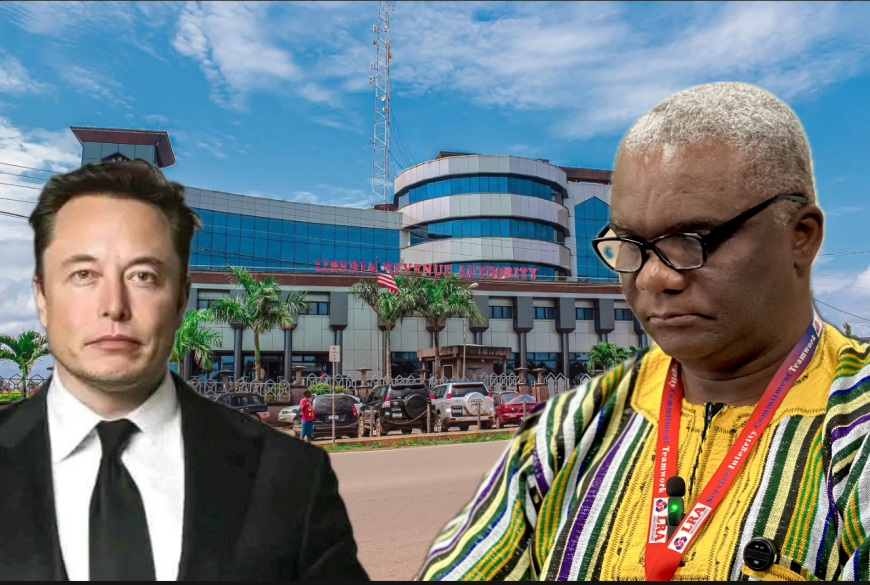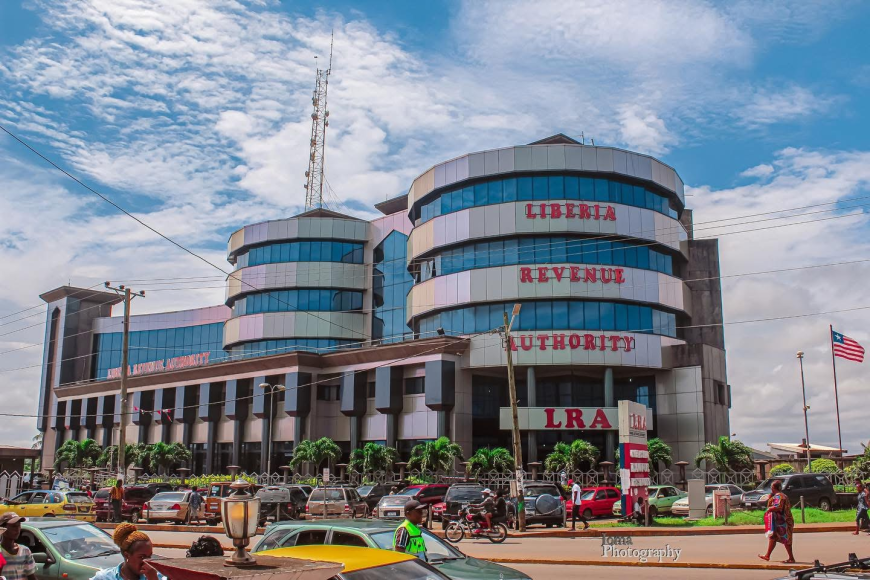“U.S. Gov’t Halts $17 Million Tax Advisory Project in Liberia: A Major Setback with Serious Consequences”

The United States Government has officially canceled a $17 million Tax Policy Advisory Project aimed at assisting Liberia with tax system reform. Elon Musk, Director of the Department of Government Efficiency (DOGE), disclosed the decision on Monday via a post on X (formerly Twitter).
Musk, who is also the world’s richest individual, questioned the expenditure, arguing that it was an imprudent use of U.S. taxpayers’ money to allocate $17 million for tax advice to a foreign nation.
This cancellation underscores the U.S. government’s ongoing effort to scrutinize and reduce global project expenditures.
The Liberia Domestic Resource Mobilization (LDRM) Project Overview
The LDRM Activity was a partnership between the Government of Liberia (GOL) and the U.S. Agency for International Development (USAID). Its primary goal was to assist Liberia in enhancing its tax policies and administrative capabilities, thus reducing the country’s dependency on foreign aid while promoting sustainable economic growth.
• Tax System Reform: Transitioning from the Goods and Services Tax (GST) to a Value Added Tax (VAT) system, in line with international best practices.
• Capacity Building: Strengthening the Ministry of Finance and Development Planning (MFDP) and the Liberia Revenue Authority (LRA) to develop and implement effective revenue policies.
• Public Engagement: Enhancing transparency and taxpayer education to foster greater trust and compliance.
Major Activities of the Project:
• Excise Tax System Overhaul: Reforms included updating excisable items, introducing excise stamps, and revising rate schedules.
• IT Modernization: Aimed at upgrading IT systems for better tax administration performance.
• Property Tax Reform: Reworking the property tax collection process, including updates to assessment procedures.
• Data Processing Enhancement: Developing improved systems for payments and filings at the LRA.
Accomplishments:
• Conducted tax benchmarking to guide policy interventions.
• Established a data processing center for greater transparency.
• Supported capacity building through training on consumption taxes, excise taxes, and audits.
• Created the LRA Taxpayer Advocate’s Office to enhance taxpayer services.
• Completed a taxpayer perception survey and cleaned the taxpayer registry.
Elon Musk’s Announcement and the Broader Impact
In a February 2025 post, Musk announced the cancellation of the $17 million project, criticizing its funding allocation. His statement read, “Why would anyone think that this is a good use of YOUR tax money?” This reflects his commitment to reexamining federal spending on international initiatives.
This cancellation is part of a broader effort by the U.S. government to cut down on global project spending, raising concerns about its potential impact on Liberia’s tax reforms.
While Musk’s stance aligns with efforts to minimize government expenditure, the decision could have serious repercussions for Liberia, as the project was designed to modernize the nation’s tax system and strengthen fiscal infrastructure.
Implications of the Cancellation for Liberia
The cancellation of the USAID project may have far-reaching consequences for Liberia’s fiscal health and overall economic development. Key potential impacts include:

1. Delayed or Reduced Tax Reforms
The project was crucial for modernizing Liberia’s tax system, including transitioning to VAT and reforming property tax assessments. Without external assistance, these reforms may face significant delays.
2. Weakening the Liberia Revenue Authority’s (LRA) Capacity
The project was designed to strengthen the LRA’s technical capabilities to tackle issues such as tax evasion and underreporting. The absence of this support could undermine these efforts, hampering efficient tax collection.
3. Revenue Shortfalls and Economic Growth
Efficient tax systems are critical for boosting domestic revenue, which Liberia relies on to fund infrastructure, healthcare, and education. Without modernization support, the country could struggle to meet revenue goals, potentially exacerbating its dependence on foreign aid or loans.
4. Increased Public Debt
Without sufficient tax revenue, Liberia might resort to borrowing, increasing its public debt. This could constrain the government’s fiscal flexibility, weakening long-term economic stability.
5. Challenges in Public Transparency and Trust
One of the project’s key goals was to enhance transparency and taxpayer education. Without it, Liberia may face ongoing challenges in engaging citizens about their tax obligations, reducing trust in the government and resulting in lower tax compliance.
6. Hindered Investment Climate
The advisory project aimed to improve tax planning and services, creating a more favorable environment for investment. Without this support, Liberia’s investment climate may remain less attractive to both local and foreign investors, stunting job creation and economic growth.
Loss of International Confidence
The cancellation of a significant USAID-backed initiative could tarnish Liberia’s reputation with other international donors. This could make it more difficult for the country to secure future foreign aid or loans.

The cancellation of the $17 million USAID Tax Policy Advisory Project marks a significant setback for Liberia’s tax reform initiatives. While the decision aligns with the U.S. government’s focus on reducing global spending, it poses challenges for Liberia’s efforts to modernize its fiscal infrastructure, enhance revenue generation, and foster sustainable economic growth.
Liberia now faces the challenge of seeking alternative support for its tax reforms, whether through other international bodies or domestic solutions. However, the path forward may prove difficult, as the country navigates the complexities of balancing its fiscal needs with the evolving global landscape of international aid.
What's Your Reaction?








































































